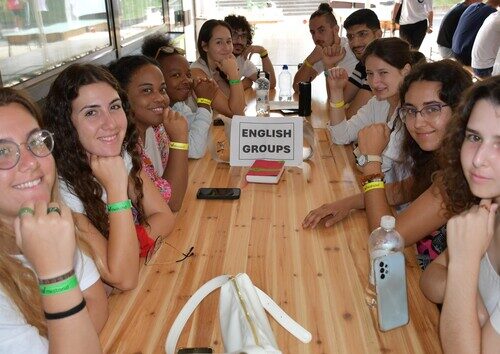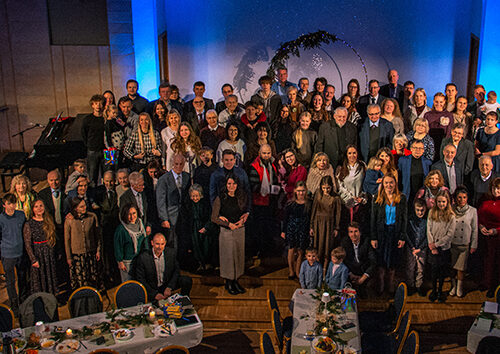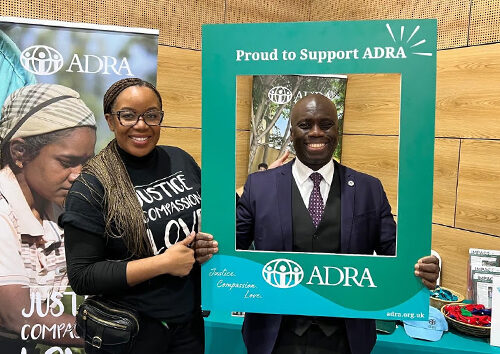10 August 2024| Maruševec, Croatia [David Neal]
The morning plenary session at the Trans-European Division (TED) Regional Rise Up Youth Congress in Maruševec, Croatia—held from Tuesday to Saturday, 6-10 August—was led by Dr László Szabó of Friedensau Adventist University, where he serves as a Lecturer in Mission Studies and Intercultural Studies. With small group Bible studies being a daily feature of the congress, David Neal (tedNEWS) spoke with Dr Szabó about the significance and relevance of small groups in today’s church.
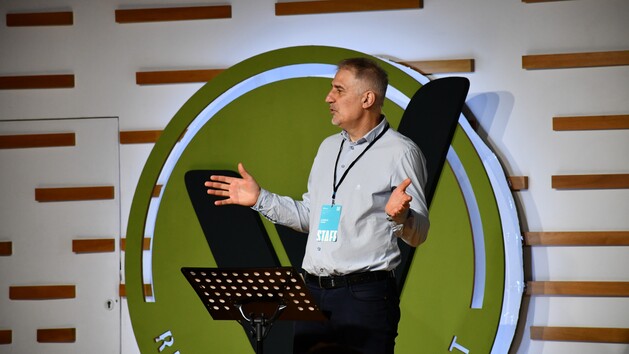
David Neal
Are small groups one of the best ways for today’s generation to create community?
László Szabó
Yes, because if you have too many people, you miss the quality of the fellowship. But with groups of between 4-10 people, maximum is a small enough tool to create the right kind of intimacy. It doesn’t take too much time in the process of sharing, so there is an opportunity to listen to everybody.
DN
For today’s generation, the most important value is quality relationships and community in church life. Why?
LS
The previous generation in ‘modern times’ was more interested in asking questions and receiving proper evidence-based answers. For example, in the debate about creation and evolution, they wanted to know who was right and who was wrong. Today’s generation, in contrast, defines what is right based on their own experience and personal feelings. For example, if I experience something good for me, it must be true.
Given this reality, it means that the fellowship we create and our relationships with other people determine what I accept as truth. It is not necessarily biblical truth, but truth for me.
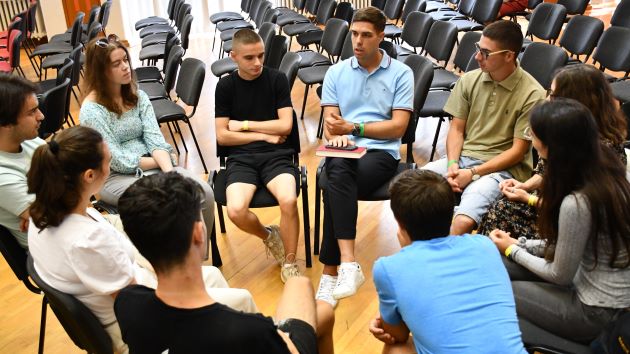
DN
What is your picture of a Christ-centred community? What does it look like?
LS
Sitting in a living room eating a sandwich together, discussing, sharing, praying, crying together, listening, and supporting each other, I like to compare the experience to four or five birds sitting in the tree just singing one after another. They create fellowship without even organising it because it is their way of life.
DN
What is the place of scripture in the small group setting for today’s generation?
LS
The whole bible is relevant because through creation God created people for community. And then sin caused the separation and consequently, we are like Cain and his followers chasing after personal achievements. But this is not God’s ideal. Sin made us want to enjoy life, experience our enjoyment, and gain our benefits for selfish reasons. Fellowship and community take second place, and in the extreme, we kill each other as Cain did.
But when Jesus lived on this earth, he demonstrated four levels of community. First, he preached and ate with the multitude. Second, he had fellowship with the twelve disciples as he did miracles, worked with them, ate with them and taught them. But for difficult times, even twelve are too many. So when He had to go to the garden of Gethsemane, his inner circle were Peter, James and John. They were his inner circle, his confidence. His fourth community level was to send out his disciples, two by two.
And these were the models the Christian community followed right up into the fourth century.
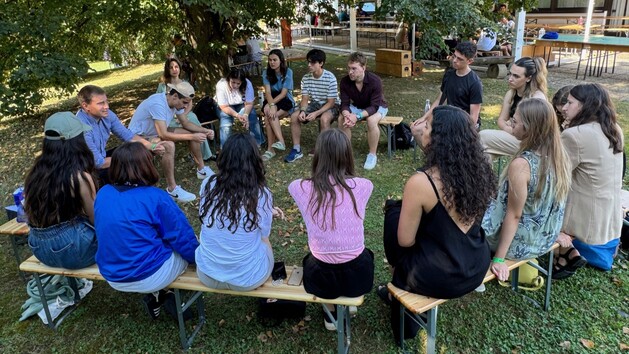
DN
Do you see this model of the church for this generation as a future way forward for the church in Europe?
LS
A small group is not a structure for the church. It is not a method but a lifestyle. A lifestyle of belonging, creating community, and doing things together is just a way of life. If you say it is not the way forward, I don’t see a chance for our church to survive. Because for this generation, without creating fellowship, experiencing belonging, and receiving emotional support from others, we will not survive as a church.
DN
How significant a value is ‘service’ for today’s young people?
Each year, on my mission trips to Tanzania, I take with me many high school students from state-run schools who are not Christians. They are secular German students who do not attend any church, but they join us to do something meaningful in Tanzania. They created their teams, and they operated with us well, and we enjoyed being together. They do everything with us, including singing, praying, and attending church worship.
Young people need to have something that will give them meaning in life. On their return home, they report and share with their community how attractive their experience with the Seventh-day Adventist church has been. At a community meeting, one girl was asked about the best part of the mission trip. Her answer was, “The fellowship I experienced with Seventh-day Adventists.”
DN
Can you imagine how the church looks five or ten years from now?
All I know at this point is this: For any church deeply embedded in the ministry of ‘looking back,’ there is only one message: Either you change—or you die. But the easiest way to start something new in the local church is not planting a new church or replacing the building’s structure but initiating something new, such as a new fellowship or a new small group. This is the easiest way of renewing the church.
[Photos: David Neal]
